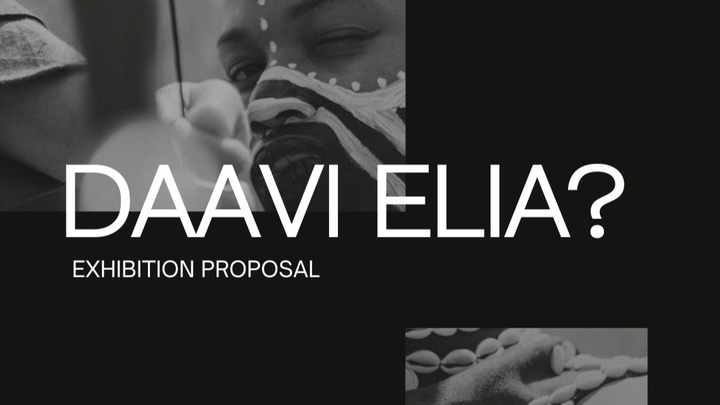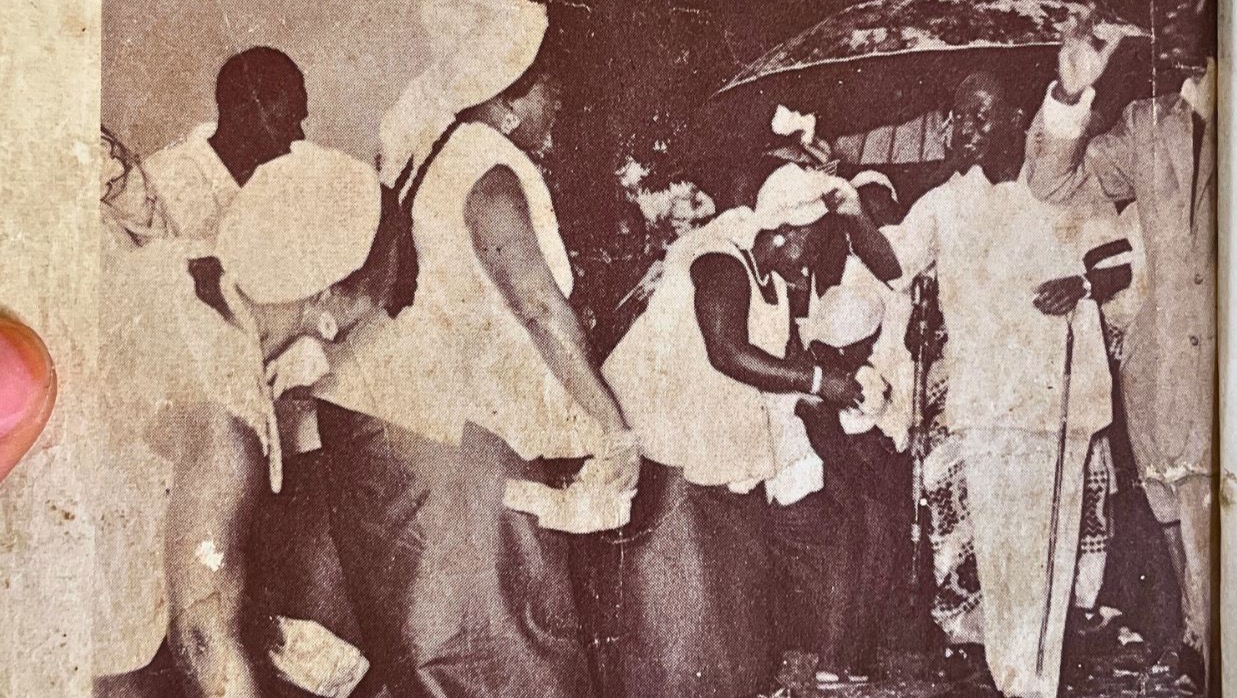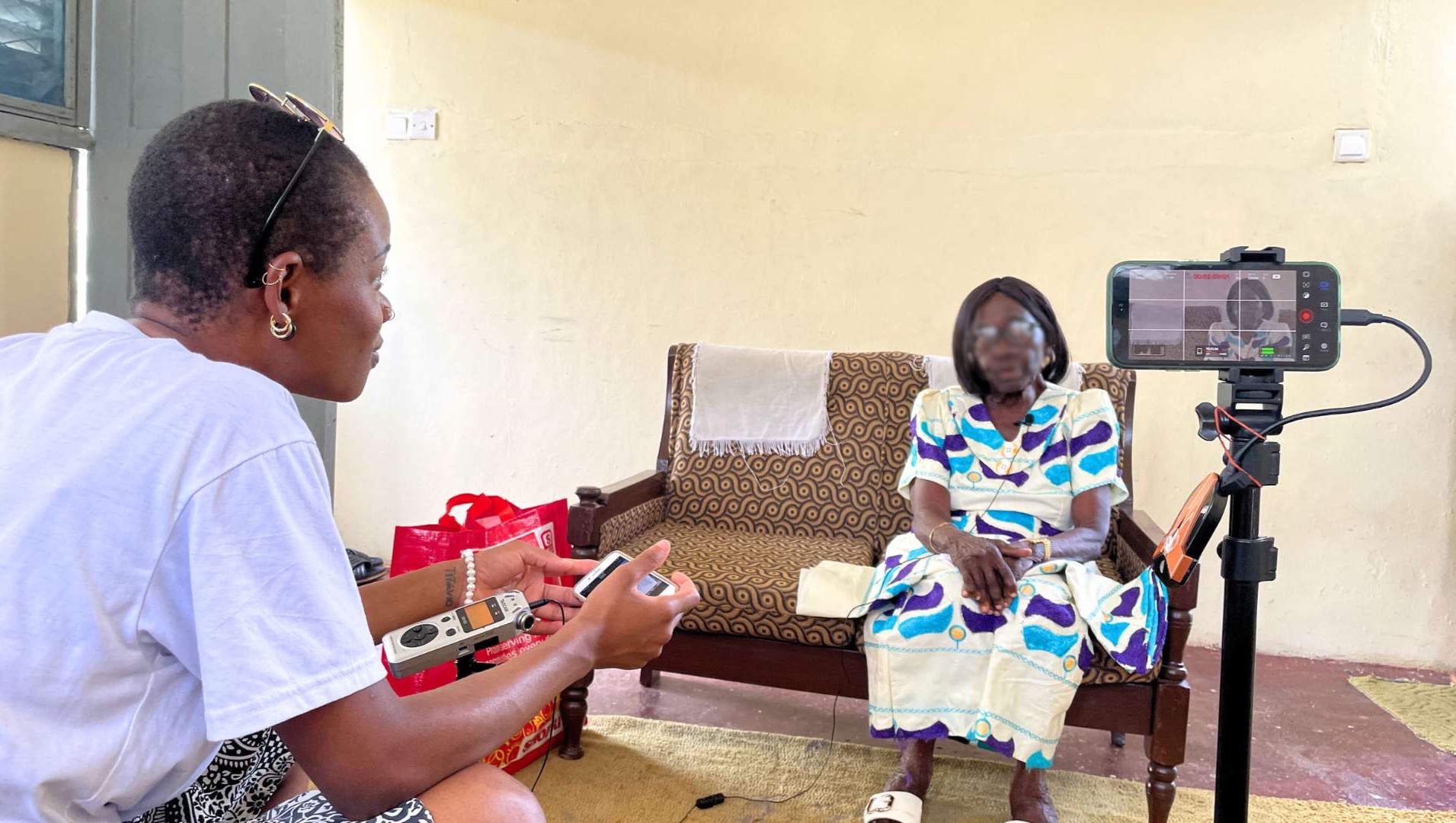
Support Daavi Elia: Exhibition on Ghanaian Women in Politics
Doação protegida
Conversations on gender equity and equality bombard our lives. Theories of equity and grand declarations by governments and organizations on policy sit in our ears and on legal documents, respectively. No one wants the tag of regression. Yet, the day-to-day actions needed to truly push our world towards equity are fought against, for to shift power requires that someone either relinquishes it, it be taken by force, or the third option which is, the delicate dance of coaxing. The latter is extremely exhausting! When it comes to issues of gender and equity/equality, the system wants the woman to shine, but on the terms of the patriarchy. THAT is extremely exhausting.
There Can Be No Gender Equity Until Our Histories UnErase The Woman
Attempting to fix problems without addressing its cause(s) or looking at its progression, is tantamount to sticking stretched out chewing gum as a permanent solution to rat-infested holes in a wall. Women have and still consistently carry the load of unrecognized labor in political, domestic, professional, spiritual, and emotional spheres yet there is little recognition of the constant juggling that women must do to balance these multiple worlds.
Ghana was the first country to gain independence south of the Sahara, thereby setting a new political pace in Africa. However, within its political narratives of nation-making, rarely are women mentioned even though there are women like Ama Nkrumah on whom I created a short film.
In Ghana:
- Politics centers men primarily
- Political history is one-sided and centers southern Ghana
- Politics is presupposed as an elite endeavor: Politics is not seen as an everyday endeavor. Instead, it is assumed to belong to a few elite people who are always found in parliament.
- The political woman is not the average Ghanaian woman: Women who make it into politics and the political archive are often the privileged minority, not members of the average majority.
Intervention
To contribute to reparative work that foregrounds women, I will be mounting a weeklong exhibition titled Daavi Elia: Narratives of Gender, Nation-making, and Representation in Ghana. Daavi Elia is an impact-driven intervention that seeks to confront the past to inform the future of women in Ghana. For gender equity in Ghana to be achieved, we must understand the diverse, ‘non-textbook’ ways that women perform, present, and pioneer the political. Doing this requires keen attention to intersectional representation, contextualization, and relatability. Conceptualized as a collaboration between Ami Tamakloe, Drama Queens Ghana, a 30 under 30 feminist organization, research interlocutors and two female portrait artists, Daavi Elia is a continuation of Ami’s previous reparative work on women and representation in Ghana .
The exhibition will feature mixed media portraits that combine 3-D fibre arts elements to induce tactility as well as excerpts of interviews in four different Ghanaian languages by 12 non-elite women from four regions in Ghana about women’s role, memories, and legacies of Ghana’s anti-colonial nationalist struggle.

Goals of the exhibition include but are not limited to:
- Expanding visual representations of who a political activist can look like.
- Initiating conversations about participation of the non-elite in nation-making.
- Expanding the meaning of political activism.
- Re-presentation of women into archives as nation-makers.
The exhibition will be open to the public and free to attend. In the spirit of rupturing the gatekeeping that happens around conversations of politics, the curator (Ami) has allocated in the budget to provide transportation to and from the exhibition on the opening night for 30 Junior High School students to attend. Furthermore, there has been an allocation for one member (preferably female) of each interlocutor’s family member to come experience the exhibition. The intention behind this is to facilitate intergenerational dialogue on politics in Ghana.

Timeline and Logistics
The timeline for the exhibition is as follows:
- Phase 01 (completed)- Jan- May: Collect interviews and materials needed across multiple regions in Ghana around the nation's anti-colonial nationalism pursuit
- Phase 02 (ongoing)- Jun – Sep: Have two female artists and one mixed media artist complete portraits of the women to be highlighted during the exhibition
- Phase 03 - Oct – Nov: Finalize logistics for the exhibition including sound, lights, invites, travel arrangements, etc.
- Phase 04- Dec 11th-18th: Open one weeklong exhibition at the National Museum of Science and Technology from Dec 11th- 18th, 2024 (space has been secured)
In alignment with the core value of this work, over 80% of services rendered for the exhibition will be by womxn.
Imagined Future(s)
What might it look like for children of the teacher, market woman, sanitation worker, lawyer, housewife etc to have conversations about politics as something attainable to all of them irrespective of their backgrounds? What might it look like for these children to recognize, in relatable ways, how their mothers enact and perform the political? What might it look like for these children to see politics as 'the everyday' so much so that they realize that THEY ARE THE POLITICAL? That they have the ability to enact changes they want in their societies because their actions, opinions, feelings and hopes matter? To get to this place, these children would have to know it’s attainable because it has been done before. We cannot create our future without reckoning with our past and its relationship to the world we currently maneauver.
Daavi Ellia is an important intervention into the pasts’ relationship to the present in hopes of arming us to create the future that we envision. I cannot do this alone and I am reaching to you for support to make this work possible. Nothing is too small and your efforts will be greatly appreciated.
Thank you
Organizador
Ami Tamakloe
Organizador
Dryden, NY